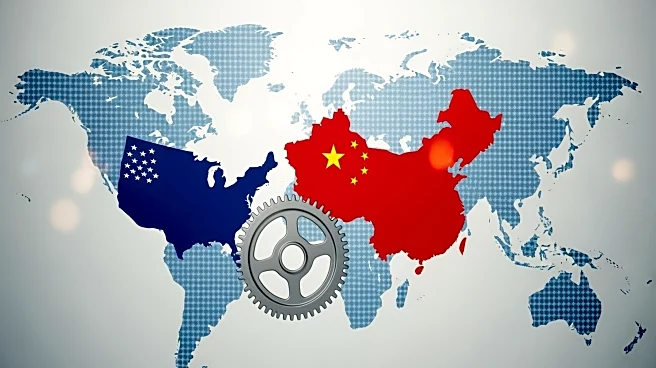What's Happening?
President Trump has embarked on a significant trip to Asia, where he is set to meet with Chinese President Xi Jinping. The meeting is anticipated to focus on negotiating a new trade agreement between the United States and China. Both nations have expressed
optimism about reaching a mutually beneficial deal. This development comes amid ongoing trade tensions that have affected global markets. The discussions are expected to address key issues such as tariffs, intellectual property rights, and market access, which have been points of contention in previous negotiations.
Why It's Important?
The potential trade agreement between the U.S. and China holds significant implications for global economic stability. A successful deal could ease trade tensions, benefiting industries reliant on international supply chains. U.S. businesses, particularly in the technology and agriculture sectors, stand to gain from improved market access and reduced tariffs. Conversely, failure to reach an agreement could exacerbate economic uncertainties, affecting stock markets and consumer prices. The outcome of these talks could also influence future diplomatic relations between the two economic superpowers.
What's Next?
Following the meeting, both countries are expected to continue negotiations to finalize the details of the trade agreement. Stakeholders, including business leaders and policymakers, will closely monitor the progress. Any agreement reached will likely require ratification by both governments, potentially involving legislative processes. The international community will also watch for reactions from other trading partners, as the U.S.-China trade relationship impacts global economic dynamics.















